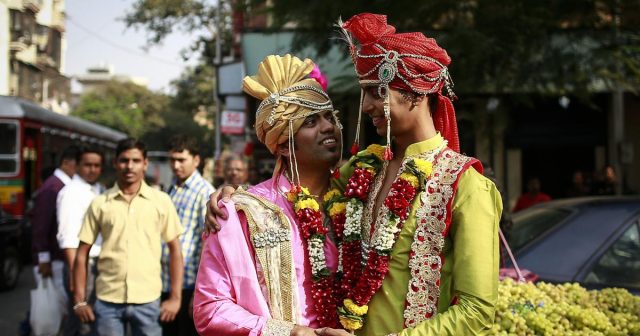In modern-day India, the society resorts to moral policing when it comes to unmarried couples or queer partners residing together. In such an atmosphere, the Supreme Court proved itself ahead of the times by making a progressive observation during a hearing. Winds of change are brought as the Supreme Court expands the family concept to include unmarried or queer couples.
Family Without Bounds
A bench comprising Justice D.Y. Chandrachud and Justice A.S. Bopanna presided over the ruling which means a lot for the youth and the LGBTQ+ community. The bench observed that “familial relationships may take the form of domestic, unmarried partnerships or queer relationships”.

It also noted that an “atypical” relationship is equal to its traditional counterpart, and deserves equal protection under the law as well as benefits available under social welfare legislation. The Supreme Court stressed the need for the law to recognise all kinds of manifestations of love that may not conform to traditional ideals.
During the hearing, the bench said it is commonly taken for granted that the word “family” both in law and society automatically indicates a binary relationship. It is assumed that “it consists of a single, unchanging unit with a mother and a father (who remain constant over time) and their children.”
Read More: Unmarried Men And Women Of The Muria Tribe Of India Live Together And Chose Their Sexual Partners; Woke People Find It Awful
The bench further noted that the above assumption unduly neglects the existence of diverse kinds of relationships. It “ignores both, the many circumstances which may lead to a change in one’s familial structure, and the fact that many families do not conform to this expectation to begin with.”
Verdict On Family Roles
The bench of the Supreme Court made the above remarks in conjunction with the verdict that a working woman has an unquestionable statutory right to maternity leave. This is applicable even when she is taking leave for a child that is not her own, but her husband has two children from a previous marriage and she is taking care of one of them.

In its order, the court expanded on the concept of family. “A household may be a single parent household for any number of reasons, including the death of a spouse, separation, or divorce. Similarly, the guardians and caretakers (who traditionally occupy the roles of the “mother” and the “father”) of children may change with remarriage, adoption, or fostering.”
Justice Chandrachud, who penned the order, further said, “The black letter of the law must not be relied upon to disadvantage families which are different from traditional ones. The same undoubtedly holds true for women who take on the role of motherhood in ways that may not find a place in the popular imagination.”

Since homosexuality was decriminalised in 2018, this novel observation by the Supreme Court is significant. Activists have been clamoring for legal recognition of LGBT marriages and civil unions as well as allowing live-in couples to adopt, and this order may be a stepping stone in their struggle.
Disclaimer: This article is fact-checked
Sources: India Today, DNA, Mint
Image sources: Google Images
Feature Image designed by Saudamini Seth
Find The Blogger: shoomedha
This post is tagged under: unmarried couples and queer partners are also family, supreme court upholds unmarried or queer relationships, progressive ruling by supreme court, justice chandrachud, justice bopanna, lgbtq rights, lgbtq civil rights, lgbt marriage, live-in couples can adopt, family is not just traditional, families are diverse, beyond binary relationships, supreme court rules unmarried and queer couples are family, supreme court expands family concept to unmarried or queer couples
We do not hold any right over any of the images used, these have been taken from Google. In case of credits or removal, the owner may kindly mail us.
Other Recommendations:
In Pics: The Greatest Queer Women And Non-Binary Television Couples































[…] Also Read: Supreme Court Expands Family Concept To Include Unmarried Or Queer Couples […]
[…] Also Read: Supreme Court Expands Family Concept To Include Unmarried Or Queer Couples […]